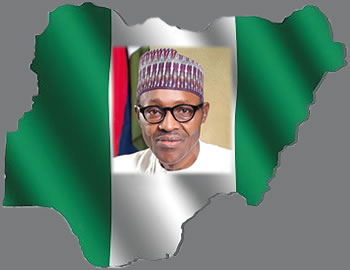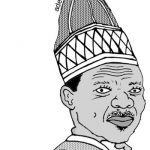CORRUPTION has, apparently, become everyday byword in our society so much so that we have, in a way, become desensitised to the cancer that corruption is. A kind of octopus with tentacles with national and global reach. The press and especially, Transparency International Daily Corruption News paint a picture of a global menace and a ‘cancer at the heart of so many of our world’s problems’ and more important, presumably, to security of nations than terrorism!
What is corruption? How has corruption become the cancer at the heart of worlds’ problems? Why had attempts by nations and global institutions and law enforcement failed to arrest escalation of corruption in society?
While battling their own corruption problems, the United Nations (UN), the Organisation for Economic Cooperation and Development (OECD) countries, the commonwealth, the African Union, all have anti-corruption conventions. The most recent anti-corruption effort on a global scale was the gathering of world leaders, institutions and NGOs in London in the spring of 2016 for the ‘Tackling Corruption Together’ conference and summit. Why should the world hope in this gathering as panacea to all of our corruption problems where others have failed?
This article is aimed, primarily, at contributing to discussion and debates on anti-corruption agenda in Nigeria and in the context of the ‘Tackling Corruption Together’ conference and summit and the country’s commitment document; at reminding Nigerian political leaders of the ‘nation’s commitment’ document signed by President M Buhari to tackling corruption in the country and that non- implementation of the commitments in full would deepen further, despair and distrust of the government by the governed. It is also aimed at exploring possible corruption causation, history and assumed solutions.
The conference and summit brought together forty three countries from around the world together with representatives from the UN, NGOs and civil organisations, for a grand anti-corruption event with the now familiar theme ‘Tackling Corruption Together’. A joint anti-corruption declaration was signed and 600 specific country commitments made.
But what is corruption? The word may be subject to different interpretations depending on situation and context. The Oxford English Dictionary defines corruption as dishonest or fraudulent conduct by those in power, typically involving bribery; the process by which a word or expression is changed from its original state to one regarded as erroneous or debased. In computing, corruption may mean the deliberate modification of data on a computer and rendering it useless.
Transparency International (TI) defines corruption broadly and used in the context of this article, as ‘the abuse of entrusted power for private gain. It can be classified as grand, petty and political, depending on the amounts of money lost and the sector where it occurs. Political corruption is a manipulation of policies, institutions and rules of procedure in the allocation of resources and financing by political decision makers, who abuse their positions to sustain their power, status and wealth’.
What is the human behaviour motivating corruption? Dr D Cressey, an eminent American Criminologist and Sociologist explores, in ‘Other People’s Money’, motives, adapted for this article, for financial fraud (corruption) as including financial pressure; peer pressure, lust for wealth and fame; greed; family and or community expectations etc. His work provides us with some insights into financial criminal behaviour but short on explaining why some individuals in a group of people, in similar occupation with similar remuneration, in the same country, choose to ‘steal’ and some do not!
Speakers at the London conference on corruption failed to define ‘Tackling Corruption Together’. The presumption, one would imagine, was that we all understood those three words! A definition proposed for the purpose of this article, is ‘the coming together of international community, waking up to the ‘cancer’ that corruption is, especially, to the poor, and coming together to propose a ‘cure’ for the cancer’.
The global collaboration proposed and promoted by the conference and summit was, especially, apt, with the conference taking place in the backdrop of the ‘Panama Papers’. The data leak in April 2016, by the International Consortium of Investigative Journalists, laying bare the extent to which corruption, tax evasion, and other criminality is made possible by the global offshore industry.
The thrust of the conference and summit was assumed to engraving anti-corruption ‘ammunition’ at the heart of governments, international institutions and organisations by means of corruption preventing measures: building integrity; ending impunity and upholding the rule of law by punishing culprits and protecting and empowering citizens and businesses reporting corruption. Tools and policies promoted for realising these objectives were centrally and publicly availability of ownership of company registers; beneficial ownership transparency in property ownership and purchasing; transparency in public procurement, contracting and open data and transparency in the extractives sector and the protection of whistle-blowers.
Statements by government leaders before, during and post conference may go down, one assumes, as some of the strongest anti-corruption and impunity fighting talk. These were aimed; it appears, at pressing home destructive impact of corruption and impunity. Mr. John Kerry, the US Secretary of State ranked the fight against corruption as more important to future security of nations than terrorism, while Mr. David Cameron, the former British Prime Minister attributed corruption to ‘the cancer at the heart of so many of the world’s problems… It destroys jobs, traps the poorest in poverty, and weakens security…..’
The cancer is prevalent perhaps, in Africa more than any other continent. The Rev Susanne Matale, (General Secretary of the Council of Churches in Zambia) appears to reflect on this in her contribution to the conference’s ‘leaders anti-corruption manifesto’; suggesting that ‘corruption isn’t just about the individuals that benefit; the crooked politicians, the officials that look the other way, the businessman that offers bribes or the lawyer that provides the cover. Corruption isn’t just about the individuals that suffer; the teacher that goes unpaid, the small businesswoman that loses out on a contract, the worker crushed in the collapse of a sub-standard building or the child that dies from hunger. These are certainly important stories and they need to be exposed. Corruption harms African countries and robs our people of their livelihoods and dignity.
- Aworinde is a Chartered and Forensic Accountant.






